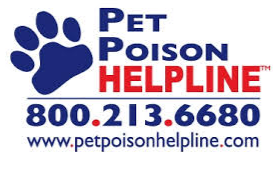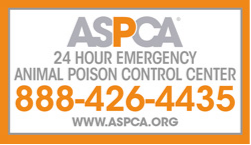Common Household Toxins - Can I Put This Oil On My Cat?
- Animal Ark Team

- Mar 24, 2022
- 3 min read

It is the last post of Pet Poison Prevention Awareness Month here at the Ark and we want to talk to you about common household toxins. If you have any of these products in your home, we recommend keeping them away from your pets.
The first item on our list is essential oils. Toxicity normally happens when owners attempt to use essential oils to treat fleas. There is currently no research that shows essential oils are effective in treating or preventing fleas in cats and dogs. Generally, cats are more susceptible to this than dogs. The most common oils that are used for this are Melaleuca oil, Pennyroyal oil, Wintergreen and pine oil. The biggest symptoms that you will see are generalized GI upset but can extend up to kidney and liver damage.
Fabric softener sheets are cationic in nature (all this means is that they have an extra electron attached to their chemical makeup) and can cause oral ulcers, vomiting, and diarrhea and can cause an intestinal blockage if they are digested. Just like with regular laundry detergent, it is important to keep your liquid fabric softener and the fabric softener sheets elevated or locked away from your pets.
The next product can be a little more scarce in some of our households but those that spend more time outdoors are more likely to have mosquito repellents. The harmful chemical in these is called DEET. Just like with humans, if this gets sprayed in the eyes it can cause severe irritation. If it is inhaled it can cause breathing difficulty and if it is ingested it can cause anything from mild GI upset all the way up to seizures. If you are applying anything topical we recommend doing this outside and away from all of your pets. This can be especially toxic for small exotic animals and birds.
The further we get down our list, the more dangerous. Probably something that all of us keep on our property is Ethylene Glycol or Antifreeze. Not to go into too much detail, but this is something in our vehicles that can leak and will occasionally need to be replaced. As little as a tablespoon of this can cause severe kidney failure in dogs and as little as one teaspoon can be fatal to cats. If you suspect that your pet has gotten into antifreeze, DO NOT WAIT. Take them directly to your veterinarian or an emergency vet. Time is of the essence in this case and waiting too long can result in irreversible symptoms.
In the spring and summer, a lot of us have gardens but fertilizer can also be very toxic to your pets. Fertilizer contains many heavy metals that can cause a range of symptoms from mild stomach pain to vomiting and diarrhea, all the way up through breathing difficulties. If you are planning to plant a garden and use fertilizer, keep the bags from your pets and do not allow them to play in the plants.
The biggest category that we have to go over is rodenticides. Warfarin, also used as a blood thinner in humans, was very popular until the last few years. This was put into rodenticides in large doses to inhibit vitamin K and cause bleeding. If your pet ingests a rodent that has had this rodenticide or gets into the product, they need to see a vet immediately. Warfarin overdoses can be reversed but you need to act quickly to prevent permanent damage or death.
The next rodenticide is bromethalin, a newer toxin that works as a neurotoxin. This means that it can cause hyperexcitability, seizures, depression, hyperthermia, and death.
Cholecalciferol is probably the newest rodenticide on the market. In the past couple of years, the EPA has changed what rodenticides are acceptable for the environment and cholecalciferol (Vitamin D3) topped the list of being the safest for the environment. However, there is currently no cure for cholecalciferol poisoning. This causes extreme calcification of the kidneys and the only treatment is fluid support.
All rodenticides are extremely toxic substances and should be kept far away from any of your domestic pets. It is also worthwhile to note that your pets can still be poisoned if they eat a rodent that has eaten rodenticide. Humane traps that are similar to feral cat traps are a better and safer option than rodenticides.
As with any ingestion of an inappropriate food item, it is important to contact your veterinarian immediately for further instructions. If you believe that your pet may have ingested a toxic substance, contact Pet Poison Helpline at 855-764-7661 or the ASPCA Poison Control at 888-426-4435 followed by your veterinary hospital or an emergency veterinarian.




Comments